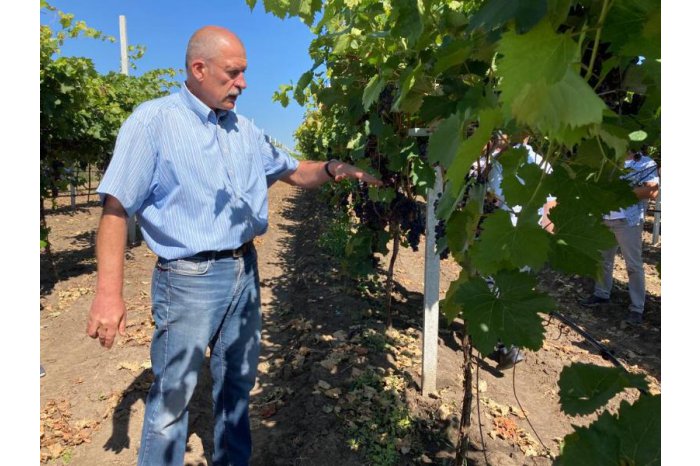EU to support clusters' creation in Cahul, Ungheni regions
10:25 | 25.03.2022 Category: Regional
Chisinau, 25 March /MOLDPRES/- The European Union supports clusters’ creation and development in Cahul and Ungheni regions.
While clusters proved effective as regional competitiveness model at European level, the Republic of Moldova just starts benefiting from the advantages of cooperation and association for business development. Tourism, agri-food products, furniture, or textiles are several sectors having a potential for clusters’ creation in the Republic of Moldova.
The “EU4Moldova: Focal regions” programme, funded by the European Union and implemented by UNDP and UNICEF, provides the necessary financial support to strengthen these local value chains and clusters in Cahul and Ungheni regions.
In the Republic of Moldova, as well as in other countries of the Eastern Partnership, the conceptualisation and implementation of clusters has just started, even if the notion has already been incorporated in certain public policy documents.
The European Union, through the “EU4Moldova: Focal regions” programme, supports the development and strengthening of the value chains and clusters from Cahul and Ungheni regions. For this purpose, local representatives of private sector, in partnership with local public authorities and the Chamber of Commerce and Industry of the districts of Cahul and Ungheni, have developed a roadmap for each region, containing economic analysis of each district, including from rural and urban areas.
The document emphasizes the value chains with all their links, from obtaining raw material till the sale of the finished product. Based on this analysis, several value chains were selected, having growth potential and the possibility to obtain a higher added value, with a large share in the social-economic life and opportunities to meet the internal and export markets. Thus, four value chains have been identified in Cahul region (table grapes, tourism, wine-making and sheep farming), and in Ungheni region (tourism, strawberries, furniture and carpets).
“Promoting clusters’ development should represent one of the main elements to strengthen the regional competitiveness, to incentivize economic growth, to create new jobs and to retain the labor force in the regions. At the same time, in the context of clusters’ development, attention needs to be paid to the opportunities of incorporating the circular economy and digitalization dimensions, by applying new technologies and principles and by updating the technological process with the observance of the environment protection principles,” mentions Simion Berzoi, Investment Attraction Officer within the „EU4Moldova: Focal regions” programme.
The cluster is a business model implying cooperation among small and medium enterprises/entrepreneurs, on one hand, and support structures from public authorities, academic environment, civil society, on other hand. The distinctive element of clusters is their flexible set-up, as each member performs certain activities depending on the market requirements and cluster’s strategy.
photo: UNDP Moldova




